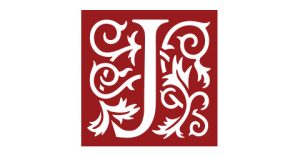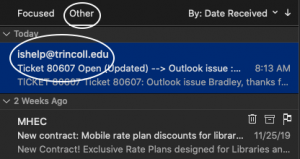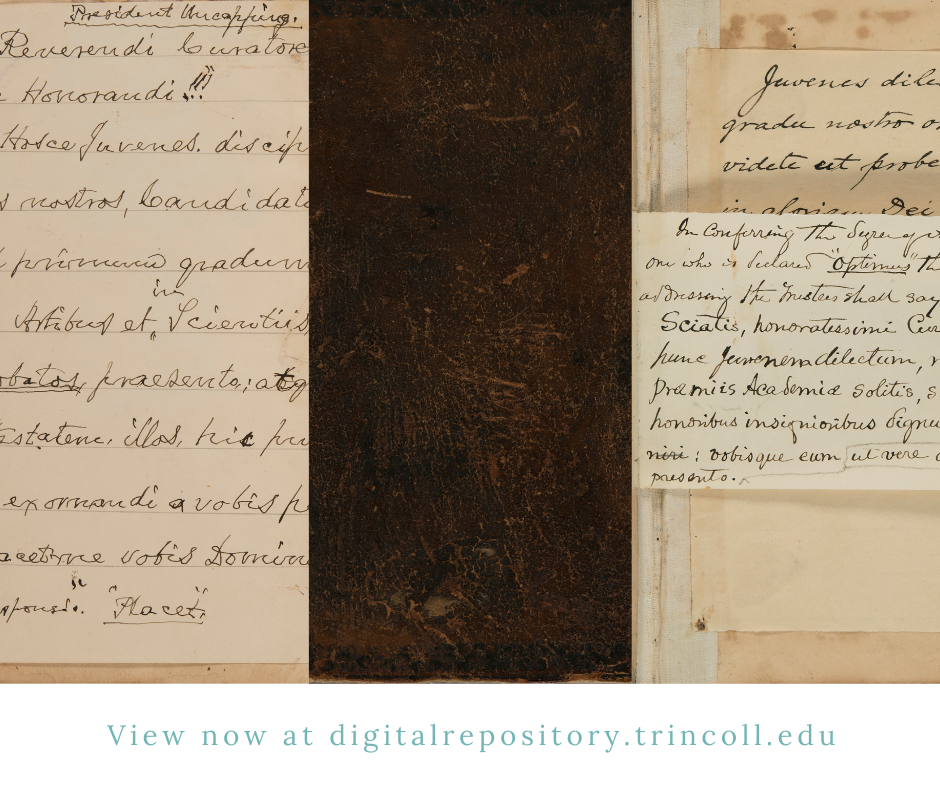by Lorraine Huddy, CTW Librarian for Collaborative Projects
 The libraries at Trinity College and its CTW partners, Connecticut College and Wesleyan University, are now using Evidence-Based Acquisitions (a.k.a. EBA). We implemented this model with well-known content providers including JSTOR, Project Muse, and most recently, Oxford University Press.
The libraries at Trinity College and its CTW partners, Connecticut College and Wesleyan University, are now using Evidence-Based Acquisitions (a.k.a. EBA). We implemented this model with well-known content providers including JSTOR, Project Muse, and most recently, Oxford University Press.
How does EBA work? The publisher/vendor grants access to a very large pool of ebook titles for one year. At the end of the year, usage reports show how many times a specific title was viewed or downloaded. Using this evidence, the libraries select which titles to purchase. With purchase, the library is given perpetual access to the title.
What a crazy idea, right? Buy books after they’re actually used instead of forecasting which books might be used, and buying those. Publishers and vendors literally provide access to thousands of titles and the libraries only buy the ones used the most by our faculty and students? Sounds like a win-win proposition for the libraries!
What’s the catch? What do publishers and vendors get out of this plan? In the EBA model, providers know ahead of time what the financial spend will be. As part of the contract, the libraries and provider negotiate the financial commitment: how much the library will commit to the EBA program, using these funds to purchase perpetual access to specific titles. The amount varies by provider but they typically use a spend ratio based on the value of the pool of titles the libraries have access to (i.e. $1 spent for every $15 of value.) On their end, libraries typically consider how much they’ve spent on a publisher’s titles in past years to calculate what they’re willing to commit to the EBA program.
How’s it working out? For the most part, so far, so good. JSTOR ebooks are getting very high use. On the other hand, Project Muse ebooks are not used as much as expected and due to overlap with JSTOR titles, Trinity will withdraw from this program in January. The Oxford EBA program was set up in July 2019 so it’s too early to tell, but the list of titles in this package is very promising.
We are watching these programs closely in case of diminishing returns over time. The number of new titles added each year is small compared to the entire pool of titles – will there be enough new content that is of interest and value to our students and faculty? Should we commit less to these programs each year as a result of this new vs. old content imbalance? As with other library resources, the proof to retain is overall usage. As long as we’re able to identify enough unique title purchases that spend down the annual financial commitment, there’s good reason to maintain these programs.







